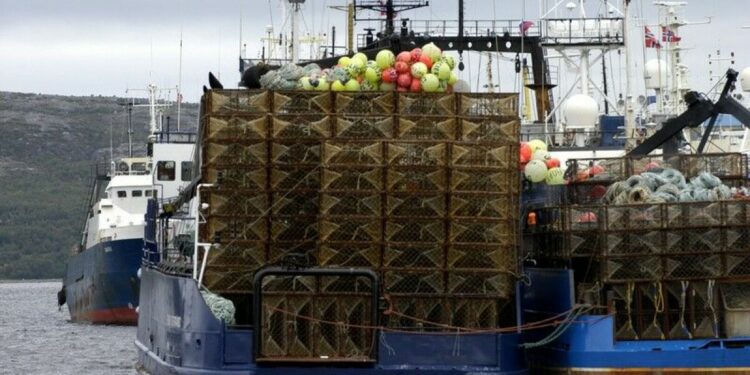Police, Customs and Coast Guard will keep control of Norwegian ports and waters along the coast. Like here in Kirkenes. Photo: Thomas Nilsen
Russia is totally unhappy with Norway limiting access of trawlers and other fishing vessels to harbors along the coast. The two countries shares common stocks of cod and other spices in the Norwegian- and Barents Seas.
“The Russian side considers Norway’s unilateral restrictions concerning Russian fishing vessels to be illegitimate,” the protocol for this year’s fishery agreement reads.
Moscow continues with a direct threat:
“In the event that further unilateral restrictions will apply to the Russian fishing vessels’ access to ports in Norway are introduced, the Russian party reserves the right to suspend this protocol without regard to the deadlines set in §7 of the Rules of Procedure for the Norwegian-Russian Joint Fisheries Commission.”
It is this statement that scares the Norwegian Government.
Minister Marianne Sivertsen Næss says the new regulations “take care of both sustainable (fishery) management and better control in ports.”
Chief of Police in Finnmark, Ellen Katrine Hætta, has previously said it is difficult to have a good control of all Russian ships.
Asked by TV2 about possible export of sanctioned items, Hætta said: “We have no reason to believe that it has not happened.”
Last winter, NRK together with other Nordic broadcasters, documented that Russian fishing vessels sailing in and out of Tromsø had a special interest in US Navy submarines when they made port calls after missions in northern waters.
The documentary, The Shadow War, also pointed to suspicious sailings by Russian trawlers near Norwegian critical subsea infrastructure.
Source link : https://thebarentsobserver.com/en/2024/07/norway-prolongs-permission-russian-fishing-vessels-make-port-calls
Author :
Publish date : 2024-07-05 07:00:00
Copyright for syndicated content belongs to the linked Source.


